Sunderland students get Irn Bru test in the can
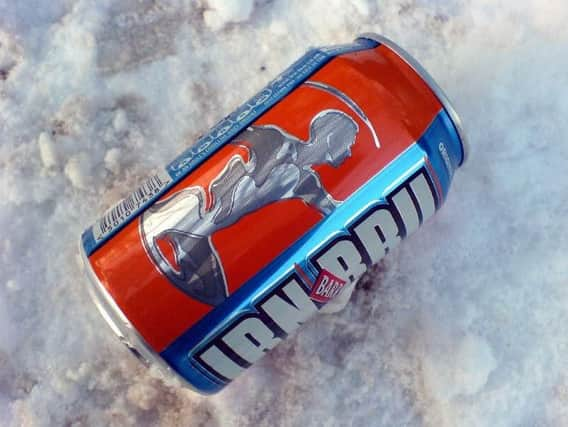

The University of Sunderland hosted young chemists as they were set the challenge of testing the fizzy drink to discover just how much iron there is in "Scotland's other national drink."
Pupils from St Anthony’s Girls' Catholic Academy and Sunderland College were among those who took part in the event.
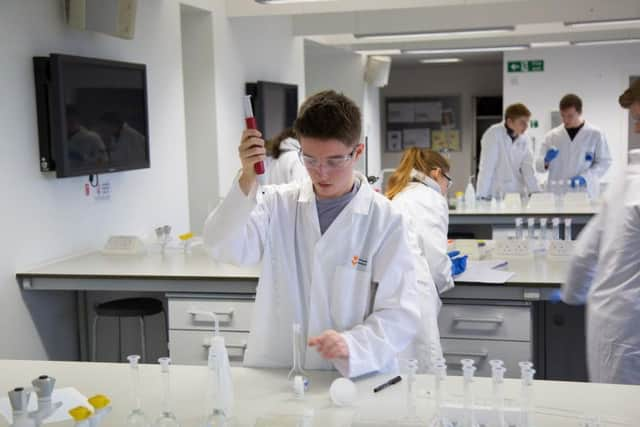

Advertisement
Hide AdAdvertisement
Hide AdThe university welcomed the students from 13 different schools and colleges across the region as part of the Schools’ Analyst Competition which sees young scientists turn investigators for the day.
Pulling on their lab coats, the teenagers got to work after arriving at the university’s multimillion-pound Sciences Complex.
Two of the world’s most famous fizzy drinks, Sprite and Irn Bru, were handed out to the students - but strictly for analysis purposes.
They were asked to test the popular drinks for quality assurance purposes using the technology in the University’s state-of-the-art laboratories.
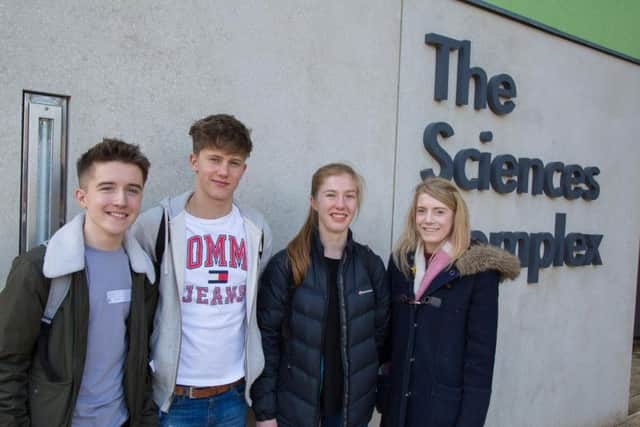

Advertisement
Hide AdAdvertisement
Hide AdThe winning team for 2018 came from St Leonard’s Catholic School in Durham and was made up of Jamie Davies and Oliver Middlemas, both 16, and Jenny Ashton, 17.
And the victorious trio could not have been happier with their findings.
Jamie, who hopes to go on to study mechanical engineering at university, said: “It was great fun, getting to work in the labs and use all of the equipment.
“I also drink Irn Bru, so that helped a bit too
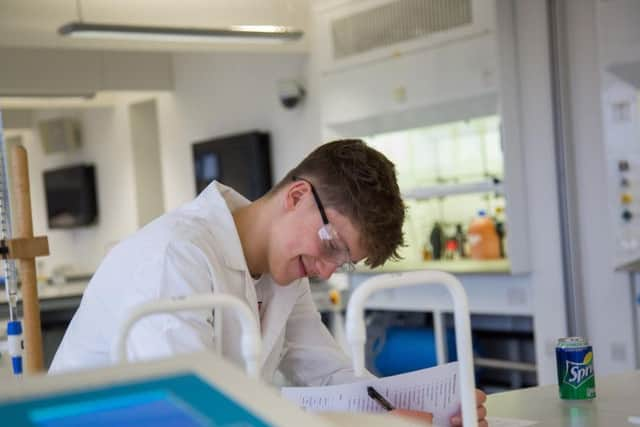

"And yes, we did discover that there is a little bit of iron in it.”
Advertisement
Hide AdAdvertisement
Hide AdJenny, who is hoping to study either pharmacy or medicine at university, also enjoyed the day.
She added: “It’s been a good fun and I’m really pleased that our school has won.”
Oliver, who is planning to study chemical engineering, said the trio were all fans of science subjects.
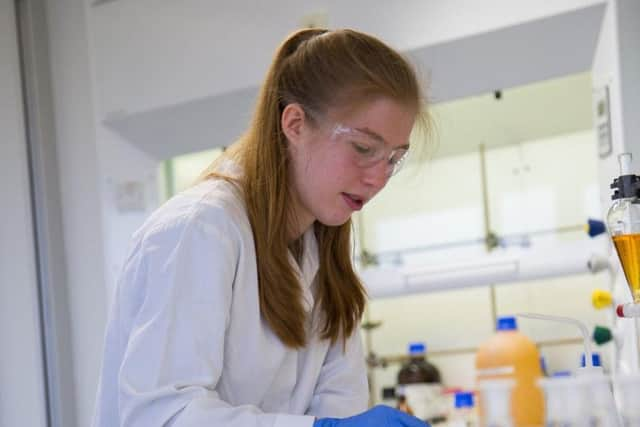

Oliver said: “I prefer it to something like English because it is much more straight forward.”
Advertisement
Hide AdAdvertisement
Hide AdJamie, Jenny and Oliver will now compete against 20 other teams in the national final, where the winning school walks away with a £3,000 prize.
Year 12 chemistry teacher at St Leonard’s, Laura Lacey could not have been more proud of her winning pupils.
She said: “The fact they’ve been at the University taking part in these experiments for a whole day is fantastic.
“It means they are getting introduced to a potential career in the sciences at a young age.”
Advertisement
Hide AdAdvertisement
Hide AdThe trio will now go through to the national finals of the competition which are due to be held in Bangor later this year.
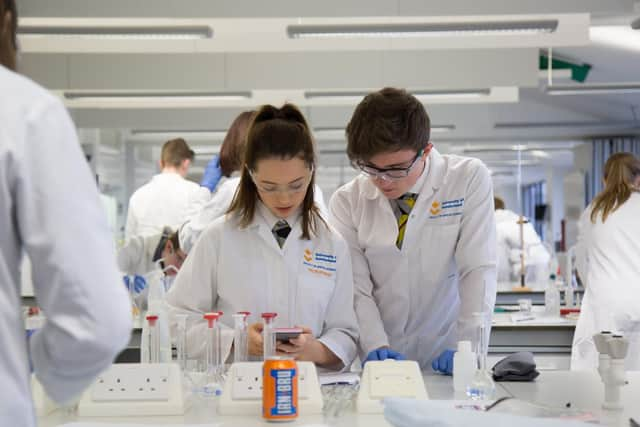

This year’s runners-up were Durham Sixth Form Centre and Lord Lawson of Beamish Academy in Birtley.
Dr Stephen Childs, senior lecturer in pharmaceutical chemistry at the university, helped organise the day and said the event is close to his heart.
He said: “I actually took part in this competition when I was a student at New College Durham, and we won that year.
Advertisement
Hide AdAdvertisement
Hide Ad“We had 13 teams, each made up of three students, taking part during the course of the day and they’ve all been really enthusiastic.”
The Schools' Analyst Competition is run by the Royal Society of Chemistry's Analytical Division for first year sixth form students studying AS level Chemistry or equivalent qualification.